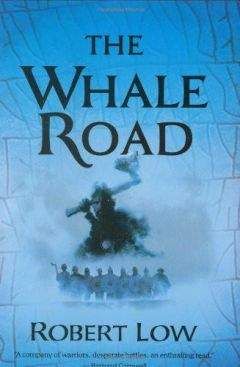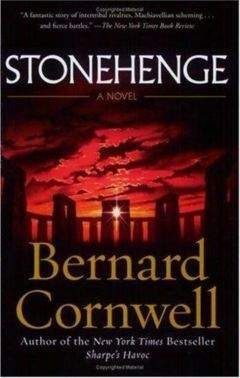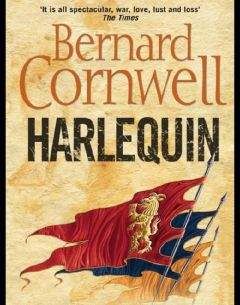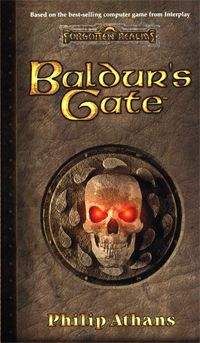Ознакомительная версия.
I let them, numbed by what I thought I knew, never taking my eyes off Einar.
Had he stabbed Gunnar Raudi in the back, hard enough to wound, to distract him?
In that half-light and confusion I turned it over and over and still it vanished like smoke.
In the end, I knew, with a deep, sick feeling, that he had, but there was nothing I could do. He was, I thought with a flush of fear, as fetch-haunted as Hild. And had broken his oath yet again in that mad moment.
Then I kept hearing Gunnar Raudi's warnings and knew, with a nauseating certainty, that I would be next.
None of it would bring Gunnar Raudi back. Illugi and I, working without a word between us while the others bound up wounds and sorted out their gear, cleaned Gunnar Raudi as best we could and laid him out on his back, hands folded on his sword. I had to tear strips off his underkirtle to bind his shoulder back to his body, rather than have that terrible gape, so like a lipless mouth.
Einar came across after we had done this, stared down at the body and where we hunkered near it. 'A good man,' he said. `He died a good death.'
I could not speak. Blood leaked into my mouth from biting the inside of my lip to keep from screaming at him: You killed Gunnar Raudi. You killed him. Like you killed Eyvind.
Einar ordered him laid at the feet of the throne, where the mouldering, fur-rotted remains of Dengizik sat, skeletal hands on the stone arms, the fur rim of his rusting helmet festering on his neck.
Everyone wanted out of that place, especially when Hild drifted like silent smoke down the stairs, to stand over the carved remains of Vigfus and smile her beautiful, fey smile.
`Dengizik has no head,' Einar noted, his voice cracked with dryness.
`The Romans took it and put it on a pole,' Hild answered, her voice seeming sucked out of her in a hiss.
'His faithless young brother Ernak, who would not stand with him against the Great City, had permission to take the body, on condition the Romans sealed the tomb, lest his fetch return. Five hundred years and more it has sat here. My mother told me this.'
There were looks flying one to another, from eyes round and white with fear. Tongues snaked over dry lips as the dust settled, mote by mote and almost sibilant. No one liked talk of a fetch in such a place.
Ìs there anything we need from here?' Einar demanded of her, his voice crow-harsh in the blood-reeked twilight.
`Not for me,' she answered, soft as the rustle of a shroud. 'But this is Atil's son and those swords were made by the same smith who forged Atil's blade from the end of the Christ spear. My distant kinsman, Regin the Volsung.'
Two swords lay across the cobwebbed, dusty brocade of Dengizik's robed lap, but no one even wanted to go near them, never mind claim them as spoil.
We left that place, treasureless and afraid, not even having looted Vigfus's men. By the time we had got back across the timber bridge—knocking it spinning into the waterfalled chasm after everyone was safely across—and down the steps, the storm had ended. The sun was out, the sky a clear-washed cloudless blue, and the ground steamed in the heat. But every leaf had a muddy wash, rapidly drying to dust in the heat.
At the stream, we refilled leather skins and bottles, soaked our heads, and considered how best to go on.
There were seven of us with wounds likely to slow everyone down and I was one of them, but we were paired with others who helped us back up the brush-covered ravines and on to the steppe.
Thereafter, it was simply a long world of pain, step by fire-laced step, hour after hour, back to Kiev.
That ankle has never been right since; it aches in cold weather and, now and then, simply gives out and throws me over like a sack of grain, always when I am trying to impress with my gravitas and dignity. Each time it flicks pain at me, I remember Gunnar Raudi.
Others suffered much more. By the second day, the man whose forearm had been speared was running a high fever and his arm had swollen like a balloon. By the time we reached the outskirts of Kiev he was being carried in a cloak held at all four corners by his oarmates, drenched in sweat and moaning piteously, while the arm had turned black to the armpit.
Illugi tried what he knew, a potion made from bark of aspen, quickbeam, willow and wych-elm: fifteen barks in all made up this one. It failed, so he tried a poultice made from the ashes of burned hair and everyone contributed some, even Bersi, whose waist-length flame-red hair had never, ever been cut and who believed it bad luck to do so.
It was certainly bad luck for Illugi's patient, who died thrashing in his sleep that night in Kiev, having made it to safety. I watched him being wrapped for burial and knew only that his name was Hedin and that he had once kept bees in Uppsala.
On the open steppe we had spotted distant horsemen, beyond arrow range and moving with us like a pack of questing wolves. But they did not come near and everyone agreed it was probably because we had come out of the tomb. Perhaps, it was argued, they thought we were fetch warriors and did not dare to contest us.
I thought it was because of Hild, the only one unconcerned by them. She walked with bold, long strides in her red half-boots, swishing the skirt of her long, blue, red-embroidered dress and only slightly soiled overmantle, a Rus zanaviska, her dark hair spilling free.
She was the perfect picture of a Norse maiden—until she turned to look at you and you saw that almost all her eyes were almost entirely black, all dark pupil, with only a thin corona of white. Regin's kinswoman and, if you knew of him, you could see the resemblance.
Ìs that the same Regin from the tales, then?' demanded Bersi during one rest halt, when we all hunkered and panted, wiping sweat out of our eyes. 'Sigurd's oarmate?'
`So she seems to say,' Skarti growled, glancing uneasily at where Hild sat, neat in her dress and staring at the horizon.
`Not an oarmate,' growled Bagnose, putting one finger to his nose and snotting to the side.
Èh?'
`Not an oarmate,' repeated Bagnose. 'Re-gin had Sigurd as fostri. He was brother to Fafnir, who became a dreaded wyrm through gold-greed and a curse. Regin was a skilled smith, though, who made Sigurd a marvellous sword. Sigurd killed Fafnir the wyrm and ate his heart, which gave him wisdom to see Regin planned his murder, so he killed Regin, too.'
`That's a lot of killing, it seems to me,' Steinthor said, 'even for a saga tale.'
Òver a hoard, too,' noted Bersi and we all fell silent, brooding on that, until it was time to move off.
Ìt's all just tales for fucking children,' growled Wryneck. 'Why we bother with this is the only mystery in it.'
Two other men died in Kiev, of the same sort of thing, their wounds swelling and turning black. A Greek doctor, whom Illugi summoned in desperation, shook his head and said the men must have had something get in the wound, a miasmic rot that festered their injuries.
We never told him where we had been, but knowing looks were exchanged. Dengizik's reach was long, it seemed, and everyone agreed that it had been deep thinking not to have taken his swords, even if they had been Regin's work.
We wrapped and buried our dead in Kiev and I listened to Illugi's soft, long chants on the wyrd of men, one usually sung by mothers mourning children.
Deep into the night before the army left for Sarkel it went on, for Gunnar Raudi, for all the others who had died and, I was thinking, hunched up with my chin on my knees, for Illugi himself and his lost gods:
`Hunger will devour one, storm dismast another,
One will be spear-slain, one hacked down in battle;
One will drop, wingless, from the high tree,
One will swing from the tall gallows,
The sword edge will shear the life of one,
At the mead-bench, some angry sot,
Soaked with wine, his words too hasty,
Will cut one down and make his wyrd.'
A thousand barrels of ale, fifty thousand sheep, the same in bushels of barley, the same yet again in bushels of millet and wheat. Sixty thousand horses, ropes, awnings, tents, hoes, mattocks . . . I heard all this when accounts of the siege were being studiously written up by scholars in the Great City, years later.
I remember one old beard, pen poised, blinking at me as we sat with olives and bread and wine on my pleasant balcony in the Foreign Quarter, enjoying the breeze across the Horn from Galata.
`How many cheesemakers?' he asked and frowned when I laughed.
I told him a number, but I doubt if there were any. I never saw a decent cheese in all the time we floated with Sviatoslav's army down the Don, or sat under those rune-tiled walls at Sarkel, sweating and fevered and scheming and trying not to die before we got rich.
If we had needed cheese, though, Sviatoslav would have provided it. For a man who famously made war on the run, as they say—no wagons, no means of cooking, just strips of leathery meat sweat-soaked under a saddle—he had changed his methods for the attack on Sarkel.
I saw him once, while sweating to load arrows and barrels of salt mutton—no pork, for half of his army wouldn't eat it, for one reason or another—on the boats, already packed with timbers and Greek siege engineers. There was a great commotion along the river bank, men cheering and breaking off what they were doing to run and line the route a cavalcade was taking.
It was Sviatoslav, cantering along in a cloud of dust at the head of his druzhina, mailed men with horsehair-plumed helmets and bright blue fur-trimmed cloaks, mounted on magnificent horses. In this heat, they would be baking ovens, but the forest of their lances never wavered.
He was visiting each of his sons and it was Yaropolk's turn, but we were too late to turn out smartly for it.
To Einar's annoyance, the Oathsworn greeted the moment like gawping yokels, stripped to the waist, streaked and sweating and loading gear like slaves mainly because we didn't trust the slaves to do it properly.
I don't know what I had expected, but the ruler of the Rus, of Kiev and Novgorod, who controlled from the Baltic to the edge of the territory ruled by the Romans of Miklagard, was a burly little man with a nub of nose and a yellow beard.
He wore white tunic and trousers, like all the Rus under their armour, but his were dazzlingly clean. His head was shaved save for that silver-banded braid over one ear. There was the sparkle of a huge gold ring in the other.
`Not much to look at, is he?' grunted Bersi, pausing in his lifting. He wiped his brow, his great mane of red hair plastered to the middle of his back with sweat.
`You can tell him that when he shoves a stake up your arse and leaves you hanging there,' countered Wryneck, swigging watered ale from a skin. He wiped his snow-white beard and tossed the ale skin to me.
Ìs that what they do here? For what?' demanded Bersi incredulously.
'For some, it is saying the Great Lord of Kiev is not much to look at,' a voice broke in and we turned to see one of the magnificent cavalrymen, helmet held in the crook of his arm, his bald head glistening.
He was smiling, as was the boy with him, a lad of about six or thereabouts, so the panic that had gripped us fled. I squinted up at him while others moved quietly, examining the boy's horse and gear, the beautifully crafted mail of the man, the great metal fishscales of his lamellar coat.
We marvelled and questioned. Three years it took to train a cavalryman in the druzhina of a Rus chieftain, we learned. Six for his horse.
The horseman spoke good Norse—East, of course, but most understood him. We admired his two sabres, his lance, the mace that dangled from one wrist, the cased bow.
Àre the Khazars the same?' I asked and he smiled down at me.
`Not so brave or good-looking,' he replied. `But they are the same; all cavalrymen are. You need to be mad to be one and your horse doubly so. It takes the same time to train them—half the army has Khazar blood in them anyway. We always end up fighting our relations in these affairs.'
We chuckled and said it was the same in the north. I tossed him the skin and he drank and gave it back, wiping excess off his moustaches.
Suddenly, Yaropolk was there, with Einar at his stirrup, both scowling.
`Father is leaving, brother,' the pimpled Yaropolk said pointedly to the boy, then flushed and inclined his head graciously to the man. 'Uncle,' he said and we now realised, with a shock, that the boy was young Prince Vladimir and the man Dobrynya, his uncle on his mother's side. The uncle now raised his helmet, slipped it back over his head and then raised one hand in salute.
`Prince Vladimir,' acknowledged Einar and the boy paused as Yaropolk rode off.
Ì like your men, Einar the Black,' he said in a sweet, unbroken voice. Ìf you survive Biela Viezha, we shall speak again.'
And he was gone, leaving us in a cloud of dust. Einar stroked his moustaches thoughtfully.
`What was all that about?' demanded Bersi. Was that really a Rus prince?'
`Kingship was what it was all about,' grunted Einar. 'When you are born to a thrall woman, you need more of it to survive.' Then he bent to a barrel and heaved. 'Back to work, you useless farts.'
As we fell into the rhythm of passing barrel and sack, someone said plaintively, `What the fuck is Biela Viezha?'
The White Castle, the Slav name for the Khazar fortress at Sarkel, was what it was. The great, white-limestone fortress on a dun-coloured rise in a bend of the Don, almost at the Black Sea was what it was. The greatest insult to the Rus was what it was, for they had to pay ten per cent on every trade flotilla that went up or down from the Black Sea and politely beg for permission to do so.
All the way down the Don, floating gently, poled by yelling, sweating Chud rivermen, we had taunted the accompanying horsemen, who rode and walked their mounts along the north bank of the Don, as sweaty as we were cool.
They were the heavy horse; the lighter ones, the bowmen who rode fat-headed, short-legged, hairy dogs of ponies, were further out, wheeling like flocks of starlings on the far steppe, keeping the Khazar scouts at bay.
If there was any fighting, we never heard of it; we spent most of the time dicing, lazing about, trading fighting tips and hurling apple cores and rye-bread crusts at the luckless, sweating cavalrymen, who took it all in good part, it seemed to me.
But when we saw the White Castle, we knew why they didn't mind. It was dazzling, blinding white and the walls were huge and solid, with four towers and two gates and a bloody great ditch. I had been told that the Khazars had cities of tents and flimsy structures, easily destroyed and just as easily rebuilt. Even their palaces were just mud brick and they lived in them only during the winter.
Not Sarkel. It will come as no surprise to anyone to learn that the Great City had a hand in building it, ever-helpful to balance the power in the area. Sarkel was built with solid pillars and Roman know-how—and now they had sent their cleverest men and their biggest engines to knock it down, which is statecraft to these Romans.
Ознакомительная версия.




